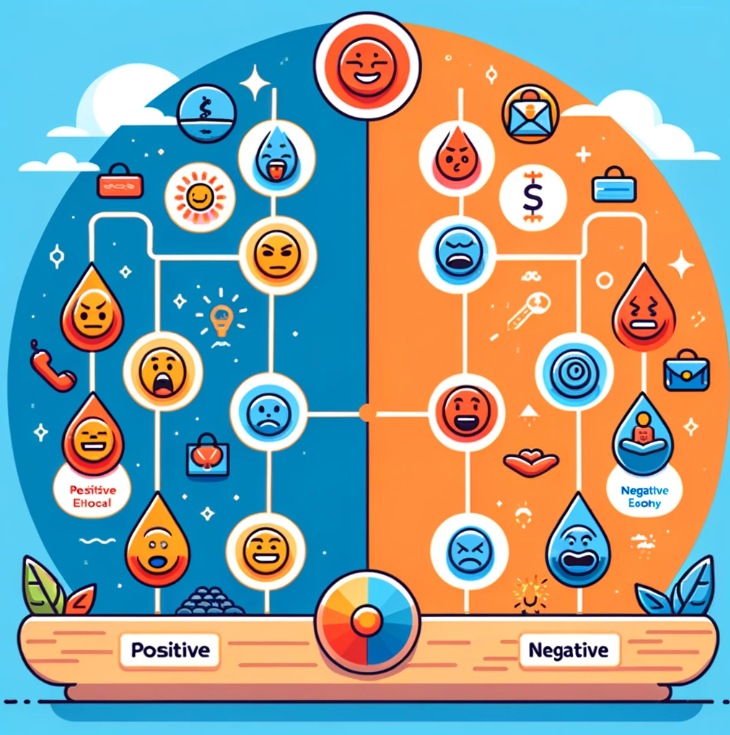Think and Grow Rich Summary & Review [Jan 2024]

Brief Overview of the Book
Think and Grow Rich, a seminal work in the self-help genre, was penned by Napoleon Hill in 1937. Emerging during the Great Depression, this book offered a beacon of hope and a roadmap to financial success and personal achievement.
Hill, influenced by the industrialist Andrew Carnegie, delves into the idea that success stems primarily from the power of thought. The book’s timeless appeal lies in its exploration of the psychological foundation of success, transcending mere wealth accumulation.
My Personal Take on It
I first read the book in my late teens. The ambitious kid I was, this book was life-changing. I built a lot of self-confidence, belief and helped my find the drive to break my shackles. The book resonated with me, particularly in its emphasis on the power of personal belief and persistence.
I have read the book multiple times, and each time I got something different from it.
As I got older some of the concepts became more questionable – for example, the ‘Mystery of Sex Transmutation’. I also see the author has persuaded me to believe in the ideas by brute force, rather than empirical evidence.
I still rate the book very highly and recommend a read, I also ask you to use your common sense while making sense of some of these chapters.

Think and Grow Rich Summary
Chapter 1: Desire
In the opening chapter, Hill posits that desire is the starting point of all achievement, the first step toward riches. He emphasizes that merely wishing for riches is not enough; one must develop a burning desire, akin to an obsession, for their realization. Hill illustrates this with the story of Edwin C. Barnes, whose intense desire to work with Thomas Edison drove him to achieve this dream against all odds.
This chapter sets the stage for the book’s core philosophy: the transformation of desire into reality through unwavering focus and determination. Hill encourages readers to define their specific goal, establish a definite date to achieve it, and create a clear plan for its accomplishment, reinforcing these plans with persistent desire and action.
Chapter 2: Faith
Hill regards faith as a state of mind that may be induced by affirmation or repeated instructions to the subconscious mind. He argues that faith is a critical factor in transmuting desire into its physical equivalent and asserts that one’s faith can be manifested through the principle of auto-suggestion. The chapter delves into the idea that faith is a form of self-confidence and a belief in one’s ability to achieve their desire.
Hill underscores the importance of positive affirmations and the belief in achieving one’s goals, suggesting that a lack of faith in oneself is a primary cause of failure. He provides methods to develop and strengthen faith, proposing that it can be cultivated, much like any skill.
Chapter 3: Autosuggestion
Autosuggestion, according to Hill, is the medium through which one can influence their subconscious mind. He stresses the significance of controlling one’s thoughts through self-suggestion, essentially programming the mind towards achieving one’s goals. The chapter highlights that all thoughts, whether positive or negative, influence the subconscious mind and, consequently, one’s actions and outcomes.
Hill emphasizes the power of verbalizing one’s desires and goals as a way to strengthen belief and focus. He instructs readers to write down their chief aim in life, read it aloud twice daily, and visualize themselves achieving this aim. This process, Hill asserts, aligns the conscious and subconscious minds, mobilizing one’s faculties towards their desired goal.
Chapter 4: Specialized Knowledge
Hill asserts that knowledge is not power; rather, it’s potential power that becomes effective only when organized into definite plans of action and directed towards a specific end. He distinguishes between general knowledge and specialized knowledge, emphasizing that success often comes not from a broad range of knowledge, but from knowing a great deal about a specific area.
Hill points out that the accumulation of great fortunes calls for power, and power comes from highly organized and intelligently directed specialized knowledge. However, he reassures that one need not have this knowledge personally but can harness it through the collective experience of a mastermind group.
The chapter guides on how to acquire specialized knowledge, advising to determine exactly what kind of knowledge is needed and to seek out that knowledge through formal education, self-study, or collaboration with others who have the knowledge.
Chapter 5: Imagination

Imagination, the workshop of the mind, is where desires are shaped into plans. Hill divides imagination into two forms: synthetic and creative. Synthetic imagination involves arranging old concepts, ideas, or plans into new combinations, while creative imagination is where new ideas or concepts are generated, often through the sixth sense.
Hill argues that all human advancements and inventions were first imagined, making imagination a critical component in achieving success. He stresses that desire can only be transmuted into its physical or monetary equivalent through the power of imaginative thought.
The chapter encourages readers to cultivate and harness their imagination, as it is through this faculty that new possibilities are seen and new plans are created.
Chapter 6: Organized Planning
In this chapter, Hill emphasizes the importance of organized planning in turning desire into action. He advises forming a mastermind group: a team of individuals dedicated to helping one achieve their goal. Hill lists practical steps for creating an effective plan, including deciding on a desired salary, determining the value one can offer in return, and continuously updating the plan as needed.
He cautions against giving in to failure, urging the reader to treat every failure as a mere setback and an opportunity to revise their plan. The chapter is replete with strategies for effective leadership and personal growth, emphasizing the importance of persistence, decision-making, and the ability to analyze failures critically.
Chapter 7: Decision
Hill states that one of the most common causes of failure is the lack of decision. Successful people make decisions quickly and firmly, whereas unsuccessful people make decisions slowly and change them frequently. He discusses the importance of making firm decisions and sticking to them, highlighting that indecision creates doubt and fear.
Hill shares stories of successful individuals who made pivotal decisions that drastically changed their lives, underlining the power of a single decision. He also warns against the negative influence of others’ opinions, which can lead to indecision and failure. The chapter encourages readers to trust their own judgment and to become decisive in their pursuit of success.
Chapter 8: Persistence
Persistence is framed as an essential factor in the transmutation of desire into its physical equivalent. Hill describes it as a state of mind that can be cultivated, involving willpower and desire. He identifies lack of persistence as a major cause of failure and outlines the key causes of this weakness, including lack of a specific purpose, insufficient desire, and lack of self-reliance.
The chapter offers strategies to develop persistence, such as building a strong willpower, having a definite purpose backed by a burning desire, and creating a definite plan expressed in continuous action. Hill emphasizes that persistence is a critical ingredient in the recipe for success and must be combined with other principles of success.
Chapter 9: Power of the Master Mind
Hill introduces the concept of the mastermind group, defining it as a coordination of knowledge and effort between two or more people for the attainment of a definite purpose. He argues that economic advantages may be created through the power of the mastermind. The chapter describes how the synergy in a mastermind group can create a collective brain, significantly more powerful than individual efforts.
Hill provides guidelines for forming an effective mastermind alliance and discusses how these partnerships can provide support, inspiration, and the sharing of knowledge and skills. The concept of the mastermind alliance is central to Hill’s philosophy, highlighting the importance of collaboration and shared knowledge in achieving success.
Chapter 10: The Mystery of Sex Transmutation
One of the more controversial chapters, Hill discusses the concept of sex transmutation, which involves channeling one’s sexual energy into creative and productive outlets instead of purely physical expression. He argues that sex energy is the most powerful of human desires, and when harnessed and redirected, can significantly enhance one’s creative abilities.
Hill suggests that many successful individuals have unconsciously used this principle to drive their creativity and innovation. He discusses the relationship between sexual drive and the traits of genius, including imagination, courage, and persistence.
While this chapter’s ideas may seem unconventional (& even controversial), they underscore Hill’s broader theme of the power of human desire and its potential for achievement when focused in a specific direction.
Chapter 11: The Subconscious Mind

Hill explores the subconscious mind’s role as a connecting link between the finite mind of man and infinite intelligence. He asserts that all thoughts, positive or negative, influence the subconscious mind and, by extension, one’s actions and outcomes.
The chapter discusses how the subconscious mind operates beyond our conscious control, shaping our lives and decisions. Hill emphasizes the importance of feeding the subconscious positive, success-oriented thoughts and warns against allowing negative thoughts to take root. He suggests that the subconscious mind can be directed through habits and auto-suggestion, influencing one’s overall behavior and attitudes towards achieving their goals.
Chapter 12: The Brain
In this chapter, Hill presents the brain as a broadcasting and receiving station for thought. He discusses the concept that the human brain, when stimulated, can transmit thoughts from one mind to another, through what he calls the “ether.” Hill explains that every human brain is capable of picking up vibrations of thought which are being released by other brains.
He delves into the idea of a “sixth sense,” through which one can receive ideas, plans, and thoughts through the medium of the subconscious mind. Hill posits that the most significant achievements in life start with an idea in the mind, stressing the importance of nurturing and cultivating these mental impulses.
Chapter 13: The Sixth Sense
The final chapter of “Think and Grow Rich” discusses the sixth sense, which Hill describes as the door to the temple of wisdom. He considers it the point at which the mind of man contacts the universal mind.
Hill clarifies that the sixth sense cannot be described to a person who has not mastered the other principles of the book, as it is an experience of the spiritual sort. This chapter is largely anecdotal, with Hill sharing personal experiences and stories to illustrate how the sixth sense works.
He suggests that through the cultivation of the other principles outlined in the book, an individual can eventually tap into this source of wisdom, which guides and aids in the achievement of one’s desires.
FAQs
How Does Hill Suggest We Use a Written Statement Aloud to Influence Our Subconscious?
Hill emphasizes the power of reciting a written statement aloud as a form of autosuggestion. By repeatedly verbalizing one’s goals and desires, one can positively influence the subconscious mind, reinforcing their commitment and focus towards achieving these objectives.
Does Hill Believe That Without His Principles, One Is Forever Hopelessly Doomed to Failure?
While Hill stresses the importance of his principles for success, he doesn’t imply that one is forever hopelessly doomed without them. However, he suggests that ignoring these principles may limit one’s ability to fully realize their potential and overcome the obstacles to success.
What Does Hill Mean by Genuine Wisdom in the Context of Success?
Genuine wisdom, as discussed by Hill, refers to the deep understanding and application of the principles of success. It’s not just about acquiring knowledge, but about the practical application of that knowledge in one’s life, particularly in understanding and leveraging one’s emotions and thoughts towards achieving desired goals.
How Do Positive and Negative Emotions Play a Role in Success According to Hill?
Hill categorizes emotions into positive and negative, stating that they directly influence one’s actions and outcomes. Positive emotions like desire, faith, and love drive constructive action and success, while negative emotions can lead to failure. Managing these emotions is crucial for success.
How Important Is It to Recognize Failure as a Step to Success in Hill’s Philosophy?
Recognizing failure as a stepping stone rather than a setback is a key component of Hill’s philosophy. He suggests that each failure brings with it the seed of an equivalent advantage and learning opportunity, and recognizing this is crucial for personal growth and eventual success.
What Are the Seven Major Positive Emotions Mentioned by Hill, and How Do They Contribute to Success?
The seven major positive emotions outlined by Hill are desire, faith, love, sex, enthusiasm, romance, and hope. These emotions are crucial as they fuel motivation, creativity, and persistence, all vital for achieving success.
What Are the Seven Major Negative Emotions, and How Can They Hinder Success?
Hill identifies fear, jealousy, hatred, revenge, greed, superstition, and anger as the seven major negative emotions. These emotions can cloud judgment, impede rational thinking, and hinder one’s progress towards achieving goals.
According to Hill, Where Do Riches Begin?
Hill believes that riches begin in the form of thought. The starting point of all riches, whether they are material or spiritual, is in the formation of a clear, definite desire coupled with a plan for acquiring it.
What Are the Six Basic Fears That Hill Describes, and How Do They Affect One’s Ability to Attain Riches?
The six basic fears described by Hill are the fears of poverty, criticism, ill health, loss of love, old age, and death. These fears can paralyze the conscious mind, hinder decision-making, and impede the pursuit of success.
How Does Hill Suggest We Utilize Our Conscious Mind to Overcome Obstacles and Achieve Success?
Hill suggests using the conscious mind to feed positive thoughts and desires into the subconscious mind. By consciously directing our thoughts and emotions in a positive direction and persistently pursuing our goals, we can overcome obstacles and achieve success.
Here’s some more career / job interview related help
- Tackling the final interview round
- How to answer ‘tell me about yourself’
- Interview questions for managers
- Do you need an Career coach / Interview coach?
- Career as a QA manager
- Project Management
- Managing Managers
- IT Career switch
- Software Engineering career path
Other posts that may interest you
- Careers– Agile Coach, RTE, Product Owner, Scrum Master
- Productivity
- Agility, Agile Testing
- Book summary apps – Headway App vs Blinkist vs getAbstract
- AI Writers: / Blogging – Jasper, Writesonic, Article Forge , Copy AI, Anyword, Writecream, Copymatic, Quillbot, Peppertype, Jasper AI (pricing) &
- Careers: Managing managers
- Work From Home tools: Jabra
About the author: Ilam’s career in Technology and Financial Services spans more than two decades, characterized by leadership roles and vast international experience. He has managed large global teams, worked across five countries, and engaged with colleagues from over 100 nationalities. Through this blog, Ilam shares his diverse experiences and insights, aiming to contribute to and enrich the community.




